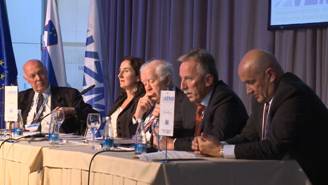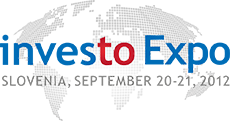European Federation of Financial Services Users (EuroFinuse) has in cooperation with investo.tv and VZMD.TV, prepared a VIDEO OVERVIEW of intensive events during the world's largest meeting of investors' and shareholders' representatives »Investors' Week«, which was organized by EuroFinuse, Euroshareholders, World Federation of Investors (WFI) and PanSlovenian Shareholders' Association (VZMD) within its investo.si - Invest to Slovenia program and International Investors' Network - invest-to.net.
VIDEO REPORT highlights the EuroFinuse International Conference on Financial Education and the "investo Expo" exposition that took place in Cankar Hall in Ljubljana, where at the closure of these events »Ljubljana declaration«was adopted. The declaration introduces the unification of two European associations, which protect rights and interests of shareholders, investors, and financial services users - Euroshareholders and EuroFinuse, comprising 50 national organizations, which represent over 4 million individual shareholders and investors.
On Wednesday, September the 19th 2012, »Investors` Week«was officially opened by Mrs. Jella Benner-Heinacher, President of EuroFinuse - the European Federation of Financial Services Users and the host Mr. Kristjan Verbič, M.Sc., President of VZMD. At the opening and gala dinner on evening before the conference, participants were also welcomed by top economic and financial Slovenian authorities, including the Slovenian Minister of Finance Mr. Janez Šušteršič, Ph.D., the President of the Slovenian Constitutional Court Prof. Ernest Petrič, Ph.D., and the President of National Assembly, Mr. Gregor Virant, Ph.D., who not only presented facts about the current economic and political situation in Slovenia but also shared their thoughts on possible future investments in Slovenia.
EuroFinuse' International Conference on Financial Education started on Thursday, September the 20th, and spread over two action packed days. The conference as well as the exposition "Investo Expo" that ran alongside, attracted a multitude of participants from across Europe and also Cameroon, Russia and Lebanon and brought together European and international experts in Financial Education from industry, policy making and academia.
The conference was structured around five individual content rich panel discussions. The first panel dealt with the crucial question of how to revitalise the EU capital markets through pensions and other reforms. Panellists criticised the apparent lack of transparency, highlighted the importance of the work of non-governmental organisations in this respect, and elaborated on the differences of European national markets that at present undermine the establishment of more cross border funds.
The second panel related directly to the title of EuroFinuse international conference and concerned the rather controversial topic of educating and protecting financial services users. Financial education is an important element in empowering consumers to make the best decisions for their financial circumstances. Although the European Commission supports in general the provision of financial education for EU citizens, little has been done in practical terms. The education level and understanding of financial matters still remain quite low amongst consumers.
The third panel tackled the much argued importance of the Euro and Eurobonds in the global context and in relation to the current financial crisis and focused on the role of banks and financial systems. Panellists as well as members of the audience engaged in a heated debate about the appropriateness of Eurobonds as the right tool for debt solidarity.
The fourth panel highlighted the barriers to shareholder engagement. At its end, a report on cross-border proxy voting also known as Eurovote, was presented by Christiane Hoelz, managing director of North-Rhine Westphalia of DSW, the German association for private investors. More information on the Eurovote project can be found on the EuroFinuse website http://eurofinuse.org/eurovote2012.
The final panel offered an in-depth view on best practices for cross border investment, presented by JAPTI, the Slovenian public agency for entrepreneurship and foreign investment. Panellists were debating the political and economic obstacles that foreign investors frequently encounter and compared foreign and domestic enterprises.
On Friday, September the 21st, the International Conference on Financial Education as well as the "Investo Expo" exposition officially closed with a speech given by Mr. Kristjan Verbič, M.Sc., President of VZMD, and Jella Benner-Heinacher, President of EuroFinuse, presenting the ‘Ljubljana Declaration'.
This so called ‘Ljubljana Declaration' foresees the merger of Euroshareholders with EuroFinuse as of January the 1st 2013, and aims to increase the visibility and activity of EuroFinuse – The European Federation of Financial Services Users.
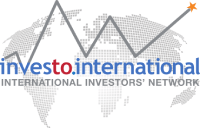




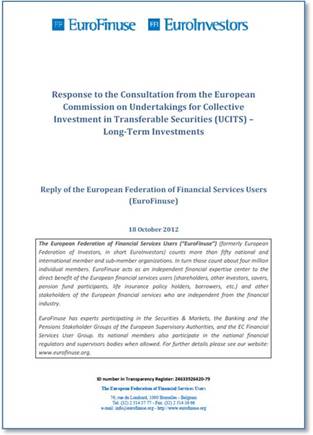

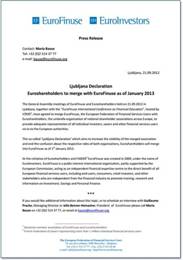
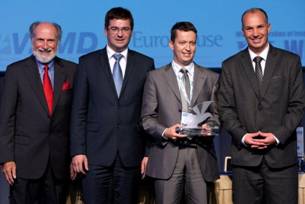 Gorenje enterprise. The award was handed over by Roger Ganser, the president of the World Federation of Investors (WFI), Uroš Rožič, State Secretary at the Ministry of Economic Development and Technology, Kristijan Verbič, the president of VZMD, and it was received by Jure Marjanovič, the Board Secretary, on behalf of Gorenje.
Gorenje enterprise. The award was handed over by Roger Ganser, the president of the World Federation of Investors (WFI), Uroš Rožič, State Secretary at the Ministry of Economic Development and Technology, Kristijan Verbič, the president of VZMD, and it was received by Jure Marjanovič, the Board Secretary, on behalf of Gorenje.